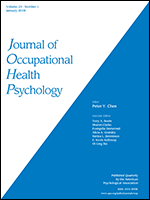

Top companies, such as Google, Apple, Aetna, and McKinsey, have conducted mindfulness training intended to improve employee well-being and productivity, but there's good reason to be skeptical about workplace mindfulness. Too often, what's being delivered as mindfulness training does not reflect the research-supported practice or may be led by instructors with as little as two days of teacher training. Additionally, few high-quality studies of the effects of workplace mindfulness training have been conducted.
This study is one of the few active treatment randomized controlled trials of mindfulness training in the workplace. Randomized controlled trials are designed to increase the validity of results.
Delivered by an instructor with more than 18 years' experience teaching mindfulness, the training was given to 60 employees of a Midwestern digital marketing firm. All participants completed a half-day mindfulness workshop using the Unified Mindfulness system.
In this approach, mindfulness is defined as three specific attention skills working together: Concentration, Sensory Clarity, and Equanimity.
Participants learned to practice while seated and also learned how to develop these skills during activities such as conversation, eating, and listening to music. Building the skills during a range of activities is intended to optimize people's time while enhancing a given activity.
After the half-day training, participants were randomly assigned to either a group that did not practice mindfulness during the six-week period or to a group that practiced mindfulness daily for six weeks. Researchers sent surveys measuring employee well-being to participating employees' smartphones throughout the workday for three consecutive days before and after the 6-week period.
While very few randomized controlled trial mindfulness studies have been conducted in the workplace, fewer still have surveyed participants while they were working. This step allowed for a more fine-grained data set, once again helping to increase the validity of the results.
Compared to the participants on the waiting list, the six-week participants showed reduced work-life conflict, increased job satisfaction, and an increased ability to focus their attention. Notably, this was the first study to research the effects of mindfulness training on attentional focus during the workday.
Overall, these findings suggest that while small doses of mindfulness training (such as the half-day training) may be enough to increase perceptions of job productivity, longer-term mindfulness training programs (such as the half-day training combined with daily practice for six weeks) are needed to improve work focus, job satisfaction, and a positive relationship to work.
Today's work culture can cause great strain on employees — high workloads and frequent distractions can have negative effects on employee well-being. A regular mindfulness practice might be one way to buffer from these negative effects on employees.
The researchers hope this study encourages further quality research investigating how mindfulness-based training can help employees.
Citation
- Slutsky, J., Chin, B., Raye, J., & Creswell, J. D. (2018). Mindfulness training improves employee well-being: A randomized controlled trial. Journal of Occupational Health Psychology. Advance online publication. http://dx.doi.org/10.1037/ocp0000132







